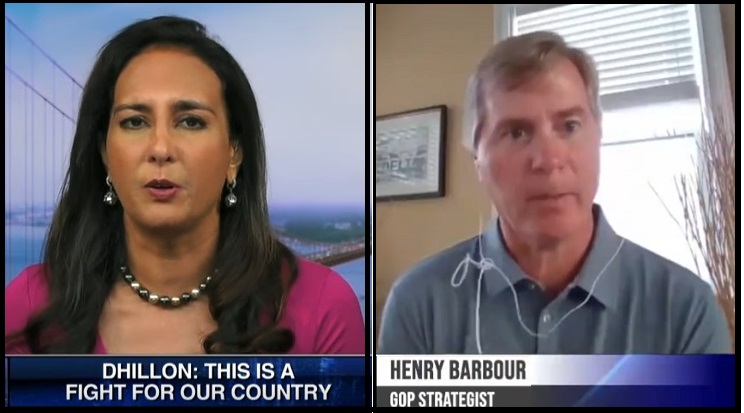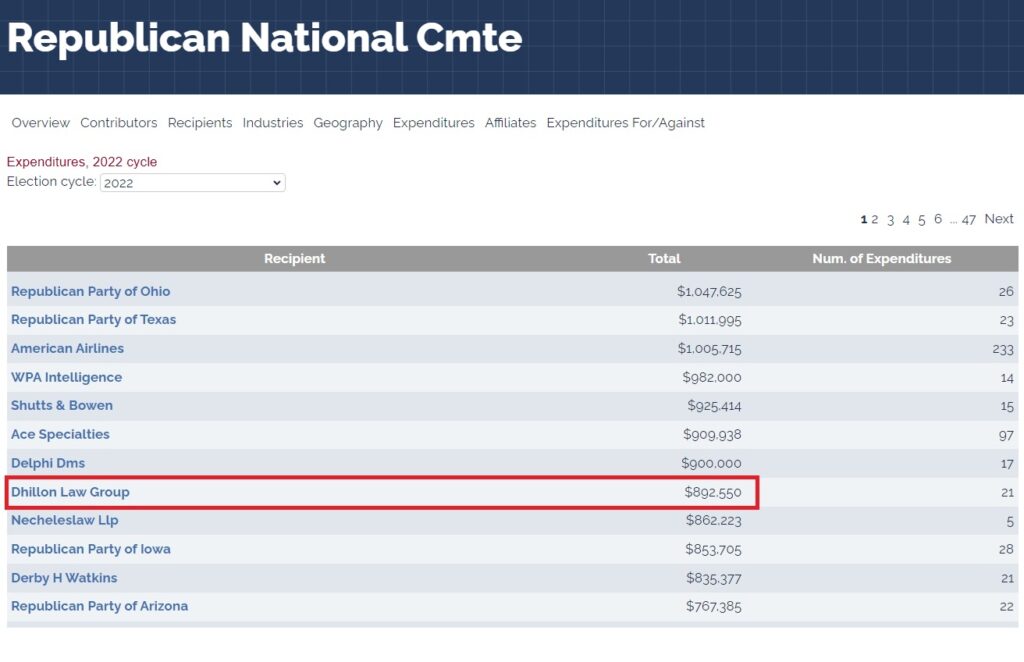from The Conservative Treehouse:

When it comes to the private corporations in American politics known as the Republican National Committee (RNC) and the Democrat National Committee (DNC), there is a common misconception that the corporations represent the voters, they do not.
The RNC and DNC corporations represent their interests, which are not necessarily in alignment with the interests of the unpaid voluntary participants, the voters. As a consequence, when a lawyer is hired by the RNC they are not representing the candidate or voter, they are representing the interests of the corporation. A big difference.
TRUTH LIVES on at https://sgtreport.tv/

[SOURCE]
The RNC is the client, the candidate is a secondary consideration, the voter is ancillary to the primary interest. In the example above, the RNC lawyer has been paid $892,550 through the end of September 2022, to represent the interests of the corporation.
It is entirely possible for the RNC contracted lawyer to succeed in fulfillment of the client goal, yet the candidate and voters lose. Remember, the corporation is paying to have their interests represented. If the interests of the corporation are not in alignment with the interests of the candidate/voter, the client interest supersedes.
Legal success is found in representing the interest of the RNC, not the candidate. Once, that success is achieved, the legal team move to the next objective as instructed by the corporation.

There are two private corporations representing Republicans and Democrats; they are most commonly referred to as political parties. There is no basis for the existence of private political parties in the United States constitution. Both parties’ function from a position as private interests outside the framework of government.
What we commonly refer to as ‘politicians’ are selected representatives to the government from each of the corporations. What we commonly refer to as ‘primary elections’ are suggestions to each of the corporations from citizens expressing their preference for the representative. The corporation can individually choose to accept or decline the suggestion from the voters, and the only thing that binds the corporation to follow the suggestion are the corporate rules.
The corporation of the RNC and DNC exist to serve their own interests.
Politics is the RNC and DNC business; however, the income stream -the financial aspects to the business- is what holds influence over the corporate priority. Ideology is part of the equation, but control of the business and generating revenue is the main function of the corporation. Unfortunately, in the reality of the business model, election outcomes are downstream from those two priorities.
It is with this corporate baseline in mind that all ‘election’ political analysis should take place.
The economics of the thing is what Republican officers in the RNC emphasize.
Without money, the corporate mission doesn’t operate. Without money the RNC members -essentially board members- do not function, hold meetings, assemble, or participate in the organization. Therefore, from the standpoint of the corporation, the business of politics (corporate donor inputs) drives the activity, not election results (outputs).
This facet to U.S. politics is rarely discussed because the corporations and the people who run them do not want this process emphasized. However, if voters do not comprehend this dynamic, they can fall victim to the fallacy of false representative choice.
Read More @ TheConservativeTreehouse.com




